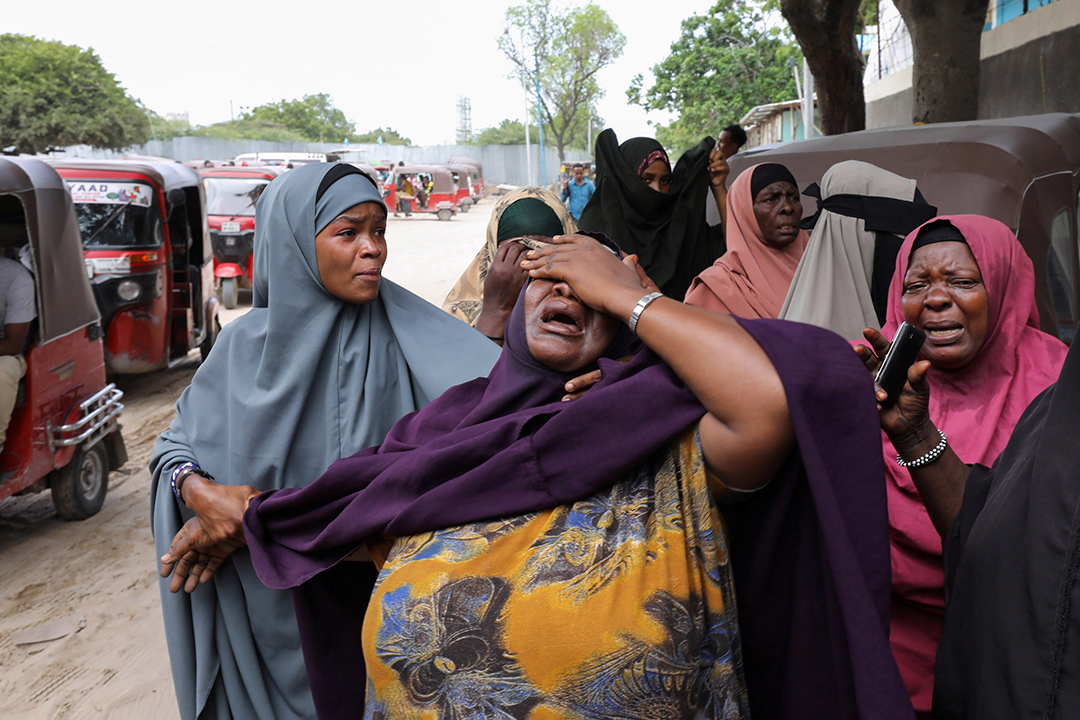Sub-Saharan Africa Emerges as Epicenter of Violent Extremism
ADF STAFF
Somali forces killed six al-Shabaab fighters in late January, but not before the terrorists bombed the office of Mogadishu’s mayor, stormed a government facility, killed at least five civilians and injured at least 16 more.
It was one of the latest in a series of terrorist attacks that have increasingly been perpetrated in Somalia and other parts of sub-Saharan Africa in recent years.
Like al-Shabaab, violent extremist groups such as Al-Sunna wa Jama’a, or ASWJ, Boko Haram, Daesh and Jama’at Nusrat al-Islam wal Muslimeen, or JNIM, are seizing on local grievances to establish a foothold in mostly rural communities across the region. That is among the findings of new reporting by the United Nations Development Program (UNDP).
One recent UNDP report labels Sub-Saharan Africa as one of the world’s new epicenters for violent extremism.
Nearly half of all global terrorism-related deaths occurred in Sub-Saharan Africa in 2021. Four of the 10 countries most affected were Burkina Faso, Mali, Niger and Somalia, where 34% of terrorism-related deaths happened, according to the UNDP.
The increased violence “not only adversely impacts lives, security and peace, but also threatens to reverse hard-won development gains for generations to come,” UNDP Administrator Achim Steiner said at a media briefing.
Violence is increasing in Sub-Saharan Africa as extremist groups lose ground in Iraq, Syria and other parts of the world. The region is targeted for its natural resources and strategic locations along major land and water routes, including areas with historically weak security.
In Mozambique, for example, ASWJ captured the port city of Mocímboa da Praia in 2020. The town is near the site of natural gas projects worth $60 billion. The port was closed for more than two years before it reopened in late 2022.
The region is also home to a massive youth population that seeks employment and may be persuaded to join a violent extremist group for ideological reasons.
According to the UNDP, violent extremist groups look to recruit people who feel unfairly treated by state forces or local militias, perceive corruption among power holders, and hold grievances over land management. People in these areas feel that disputes are not resolved effectively and judicial systems give crime victims little hope for justice.
In Kenya alone, attacks linked to al-Shabaab increased from 51 in 2021 to 77 in 2022, a 26% increase, according to a report by the Center for Human Rights and Policy Studies (CHRIPS). Almost half of the attacks targeted security officials. The 2022 attacks resulted in 116 fatalities — up from 100 in 2021 — including 42 civilians.
Most of the attacks were concentrated near Kenya’s border with Somalia, the report said. The attacks mostly targeted security vehicles, some villages, and port and road projects.
“While security officials and counter-terror bodies in the country are to be commended for the increased measures put in place to counter violent extremism in Kenya, the Observatory data shows that al-Shabaab continues to pose a threat as the frequency of terror-related attacks has increased over the year, largely targeting security officials primarily on transit or on patrol by the use of various explosive devices,” CHRIPS researcher Rahma Ramadhan said.
The most recent UNDP report indicates that military efforts alone are not enough to defeat extremism.
“Security-driven counter-terrorism responses are often costly and minimally effective, yet investments in preventive approaches to violent extremism are woefully inadequate,” Steiner said. “The social contract between states and citizens must be reinvigorated to tackle root causes of violent extremism.”
The report argues that a new approach to stemming extremist violence should aim to understand the complex ways violent extremist groups recruit or intimidate civilians as they act as alternatives to state authority.
That knowledge may help stakeholders work with local and national governments to ensure that people have access to the rights, goods and services they need to lead prosperous lives.
Transitional justice, the process of responding to human rights violations through judicial improvements and political reform, is critical to rebuilding inclusive states in the context of extremist violence, said
Institute for Justice and Reconciliation, a South African think tank.
Lucey agreed that systemic state failure, limited economic opportunity, marginalization and discrimination all led to the rise of extremist violence groups in Africa, specifically the radicalization of young people.
“This requires a shift in policy thinking, from a greater emphasis on the individual towards the collective and structural conditions that give rise to violence, and an understanding that radicalization may emerge from the absence of alternatives in which to engage the State,” Lucey wrote on South African news website news24.com.


Comments are closed.